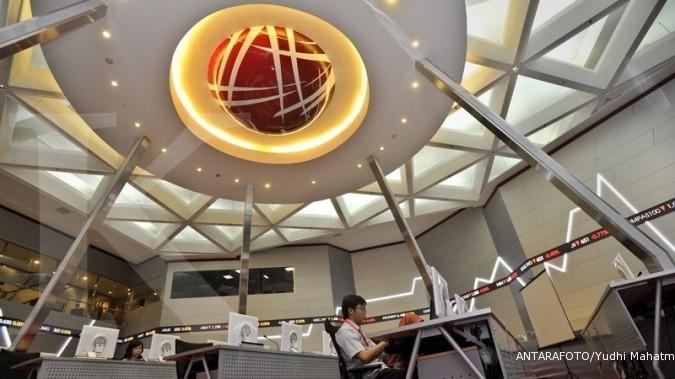Indonesia bourse says firms must float at least 7.5 pct
Bareksa • 24 Jan 2014

Kegiatan di Bursa Efek Indonesia (ANTARAFOTO/Yudhi Mahatma)
The regulation should also be good for corporate governance
Reuters - Indonesia's stock exchange required companies to make shares amounting to at least 7.5 percent of their paid-up capital available to the public, in a bid to increase market liquidity and trading volumes. The new rule, effective from Jan. 30, will give listed companies two years to comply, the stock exchange said on Thursday.
"The regulation should also be good for corporate governance because a higher percentage of floating shares will attract more attention from minority shareholders," said Jemmy Paul, head of investment at Jakarta-based Sucorinvest Asset Management.
Companies that are likely to be affected include cigarette maker Hanjaya Mandala Sampoerna and lender Bank CIMB Niaga. HM Sampoerna's main shareholder, New York-listed Philip Morris International owns 98.2 percent, while CIMB Niaga is 96.9 percent-owned by Malaysian-based CIMB Group, companies said in exchange filings.
"Companies like BNGA or HMSP have to decide either on going private, making a rights issue or making a share placement. I think going private is the least preferred," Paul said. The exchange is also raising the free-float requirements for companies planning an initial public offering (IPO). The following table shows the details :
Equity valuation Free-float size
less than 500 bln rupiah 20 percent
500 bln to 2 trln rupiah 15 percent
more than 2 trln rupiah 10 percent
Last month, Indonesia's stock exchange reduced trading sizes to 100 shares per lot and increased the maximum volumes on orders, effective Jan. 6. The Jakarta Composite index has risen 5 percent so far this year, making it the second-best performing market in Southeast Asia after Vietnam.